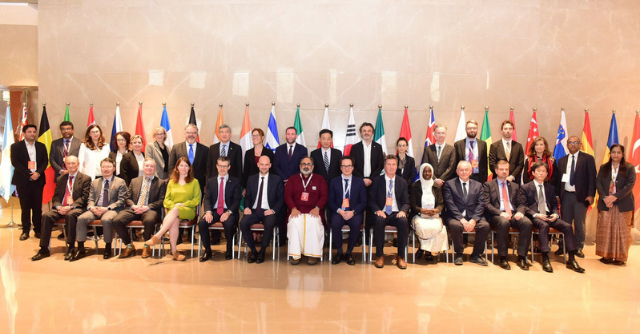
What is New Delhi Declaration on AI


The three-day Global Partnership on Artificial Intelligence (GPAI) Summit 2023 taking place in New Delhi concludes today. One of the most significant outcomes of the summit chaired by India this time, has been the adoption of New Delhi Declaration on AI by the 29 participating countries.
This declaration firstly recognises the advancement of AI technology and its role in generating economic growth, innovation, jobs across sectors, and its potential to generate jobs across sectors. That said, it also notes that AI poses risks pertaining to misinformation and disinformation, unemployment, lack of transparency and fairness, personal data and intellectual property protection, and a threat to democratic values.
“We underscore GPAI’s pivotal role in addressing contemporary AI issues, including generative AI, through applied AI projects aimed at addressing societal problems and global challenges, maximising the benefits and mitigating associated risks,” the declaration noted.

The document underscores the role of and support towards India as the Lead Chair of the partnership for 2024, especially in projects that allow equitable access to resources (including for low and middle-income countries) for AI research and development, including computing, diverse datasets, software, testbeds, among others. The partner countries affirmed the importance of having AI ecosystems that are diverse and inclusive.
As noted by the declaration document, AI innovation for sustainable agriculture has emerged as the new thematic priority for GPAI. In this context, the member countries have mentioned the importance of promoting the development of and access to ‘risk-proportionate’ trustworthy AI applications to ensure sustainable food production systems and resilient agricultural practices.
Lastly, the consortium of the partner countries will also be working to strengthen GPAI’s identity as a multilateral initiative for advancing the trustworthy use and deployment of AI. GPAI will also engage with international fora like G20, G7, OECD, and several UN bodies to ‘leverage synergies and avoid duplication of efforts’.

Notably, during the inauguration of the summit on December 12, Prime Minister Narendra Modi spoke about the need for a global framework that works within a fixed timeframe to build transparent and trustworthy AI systems. At the same event, he also announced that India will soon launch an artificial intelligence (AI) mission with the aim of establishing capability for AI compute power for startups and innovators. The AI mission will promote AI solutions across industries like agriculture, healthcare, and education. Further, through industrial training institutes (ITI), AI skills training will be imparted to people living in tier-2, and -3 cities.
